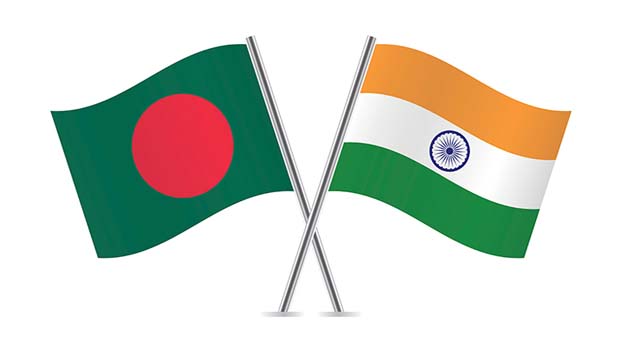Fifty years of India-Bangladesh relations
The relation between Bangladesh and India are tied with the blood-stained history of the 1971 Liberation War

Bangladesh approaches fifty years of independence. The struggle for independence of ideology, culture and identity that liberated the nation is on the threshold to be a glorious historical nation after almost half a century. At the call of the Father of the Nation Bangabandhu Sheikh Mujibur Rahman, people of this country fought, won and made a bright history.
There is a hundred -year-old proverb, "A friend in need is a friend indeed". In the same way, the horrific days of 1971 were known to Bengalis as both of friends and enemies. The Pakistani aggressors were engaged in a killing spree like a narcissist in 1971.
However, India became a friend and stood firmly beside the homeless, unclad, hungry people. India provided food, clothing, shelter and protection to more than one crore refugees. The friendly India provided training and weapons to the Bengali fighters in 1971. Not only that, the Indian army took part in the war on behalf of the Bengalis ignoring all the obstacles.
India’s "diplomatic approach" to support Bangladesh during the liberation war is unprecedented in history. India was one of the artisans in pressuring the international community and compelled Pakistan to release the Father of the Nation Bangabandhu Sheikh Mujibur Rahman. The great Bengali nation remembers the debt of India with gratitude.
India recognized Bangladesh as an independent state on 6th December 1971, just before the end of the war of liberation. On the same day, Bhutan also recognized Bangladesh. These two countries were the first to recognize Bangladesh.
Bilateral relation between Bangladesh and India is much different than any other bilateral relationship. The relation between Bangladesh and India are tied with the blood-stained history of the 1971 Liberation War, and the neighbouring countries are tested friends.
The Prime Minister of India, Smt. Indira Gandhi, extended her hand of cooperation in building a newly independent Bangladesh. Under the leadership of Father of the Nation Bangabandhu Sheikh Mujibur Rahman and Smt. Indira Gandhi, a long-term friendship and security agreement was signed in 1972. Both countries recognized each other's geographical boundaries, sovereignty, regional security and economic development.
At a time when the people of the two countries took the relationship, a group of anti-liberation forces brutally assassinated Father of the Nation Bangabandhu Sheikh Mujibur Rahman and his family and through this the defeated forces of Pakistan seized power. After coming to power, they started opposing India and incited communal hatred.
Bangabandhu's daughter Sheikh Hasina came to power after a long 21-year struggle against evil forces. As soon as she came to power, Prime Minister Sheikh Hasina started trying to restore the relationship between the two countries and extended the hand of friendship. One of the results of which was the historic Ganges water sharing agreement between Bangladesh and India in 1996.
During that time, relations between the two countries continue to move forward through economic development and the establishment of new contacts.
Prime Minister Sheikh Hasina has been in power since 2009. Her popularity is increasing day by day. Now she is a successful statesman and a popular world leader. During Prime Minister Sheikh Hasina's visit to India in 2010, relations between the two countries were accelerated by expanding economic exchanges. The strong sectarian opposition of the Sheikh Hasina government attracted the attention of the Indians.
At the same time, she strongly suppressed the possibility of the emergence of internal terrorism in the anti-terrorism campaign. As a result, the anti-India forces in Bangladesh became weak. India has a rare opportunity to control the isolation of its northeast. The result is a new horizon for trade between the two countries.
India provided 850 million US dollar in 2011 and 1 billion US dollar in 2014 to Bangladesh. On July 26 this year, India handed over 10 broad gauge locomotives to Bangladesh. This is an implementation of an important promise made by the Modi government during the visit of the Prime Minister of Bangladesh Sheikh Hasina to India in October 2019.
Bangladesh is the first neighboring country with which India has signed a vaccination agreement in the backdrop of Covid-19 pandemic. Reportedly, India will give 30 million corona vaccines to Bangladesh on priority basis. Moreover, the two countries have continued to co-operate in each other's needs during this testing times.
We hope, the two countries will expand their cooperation in various fields including border security, blue-economy, space research, cyber security and economic cooperation in future. They will always be by each other's side as in the past.
Anoy Mukherjee is a Freelance Columnist and Executive Member, Sampritee Bangladesh.




